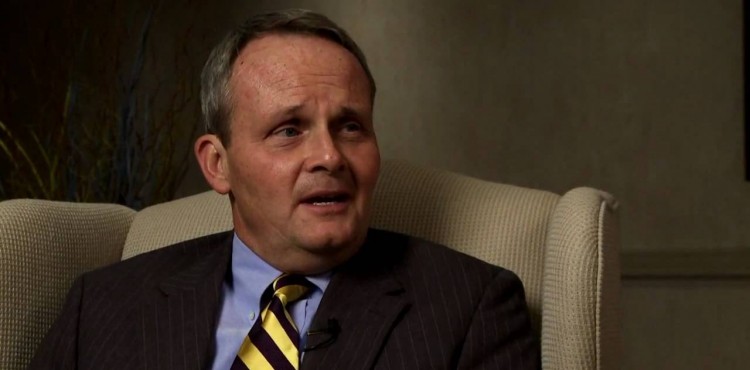How Do You Stop Liberal Lies On Campus? (Author Lawrence Reed)

By Jacqueline Isaacs
CBC had the opportunity to speak with Lawrence Reed, editor and co-author of Excuse Me, Professor: Challenging the Myths of Progressivism. He is currently the president of the Foundation for Economic Education (FEE) and president emeritus of the Mackinac Center for Public Policy.
Congratulations, Mr. Reed, on your new book, Excuse Me, Professor! Can you give us an overview of your book, and what was your inspiration in writing it?
This book provides definitive and convincing arguments against most progressive misconceptions that students are exposed to on campuses. These are arguments that students find convincing and useful.
In early 2014, the president of the Young American’s Foundation (YAF), Ron Robertson, and I set out to debunk the major clichés of progressivism. Over the next year, 52 weeks, we took on more than 52 different myths covering topics including free enterprise, income inequality, and limited government. These current essays have been combined with portions from two classic FEE publications that YAF helped distribute in the past: Clichés of Politics, published in 1994, and the more influential Clichés of Socialism, which made its first appearance in 1962.
The magic of the book is that though the title suggests it is intellectual ammunition for students, it really has a broad audience. You can be a relative new-comer to these issues and find it valuable, or you could be a student who identifies as a conservative or libertarian but are not equipped to discuss all of these different issues.
The other part of the book’s magic is that it is useful for anybody of any age who wants to know how to answer these progressive attacks. You could be a retired concerned citizen wanting to write letters to the editor of your local paper, or you could be a career policy worker who wants some short thoughts on how to discuss these issues with your peers.
What three takeaways would you like readers to leave with after reading your book?
- I want readers to know that the Great Depression was not the fault of the free market. You still hear this misconception taught in classrooms like fact, and it just isn’t true.
- We also spend several chapters debunking the philosophy that wealth inequality is a problem of free markets that government must resolve through high taxes and redistribution.
- I’m perhaps most proud of the chapter about Upton Sinclair’s The Jungle – many students are told that it was not fiction, but that it was fact. I wrote a chapter (chapter 29) which deals with that specific error, but also deals with regulation more broadly. My goal with that chapter is get to the reader to think, “I wonder if the arguments for other regulations should be approached with a more dubious mind.”
What books, authors, or conservative-themed books, influenced your political philosophy and outlook on life?
My economics professor at Grove City College, Hans Sennholz, was a former student of Ludwig von Mises. He is the reason I chose to attend Grove City College. It was if I got the opportunity to learn from Mises, through Sennholz, just one generation removed.
Russell Kirk, the political theorist and moralist who wrote the influential The Conservative Mind, was a great friend and influence. When I taught at Northwood University, he would come speak to my classes.
Henry Hazlitt, who wrote extensively on business and economics, had a significant influence on me personally, but also had a significant influence of FEE.
What is next for you and for FEE?
In April of this year, I started a new series called “Real Heroes.” The series is expected to run for a year, much like our “Clichés of Progressivism” series that led to this book. Each week, I share stories of people whose choices and actions make them heroes of freedom. We hope that in 2016 we can publish that book as well.
Interview written by Jacqueline Isaacs. Mrs. Isaacs is the Fellow in Strategic Communication at the American Studies Program. She holds an MBA in Marketing from the Johns Hopkins University Carey Business School, and has worked in marketing communications for a variety of DC-area nonprofits.
Tags: Author Interview, CBC Author Interview, CBC Exclusive Author Interview, FEE, Lawrence Reed











